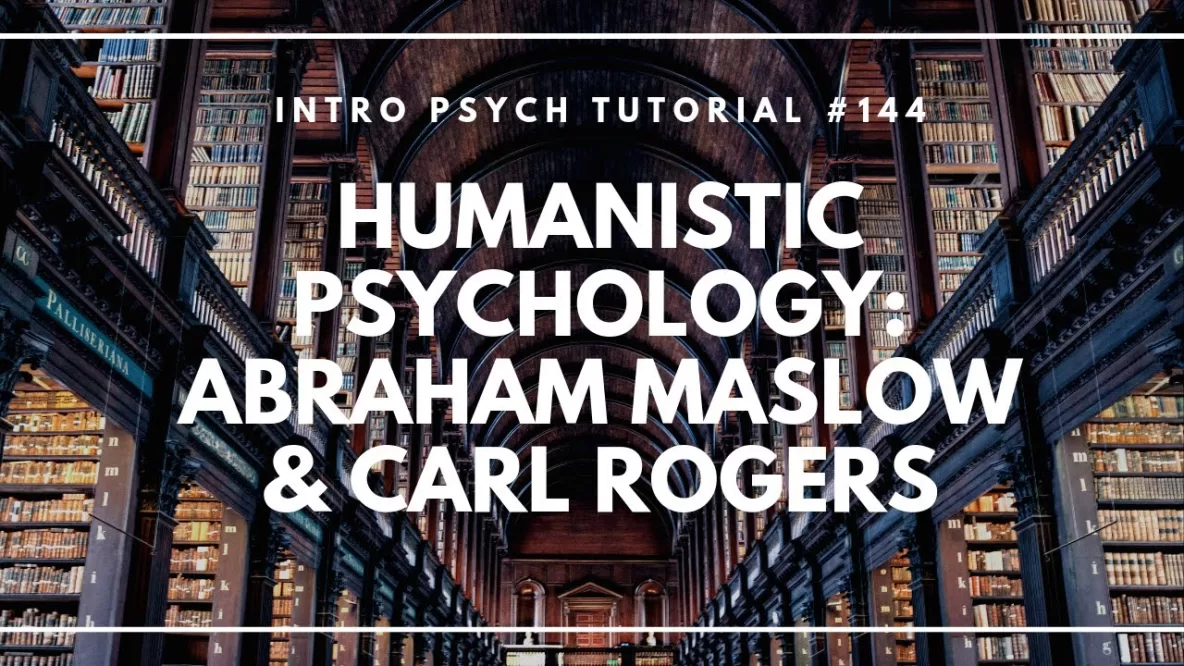In this video I provide a short introduction to the ideas of humanistic psychologists Abraham Maslow and Carl Rogers. Maslow and Rogers both emphasized the role of an intrinsic drive towards self-actualization, or fulfilling one’s greatest potential, in shaping an individual.
Don’t forget to subscribe to the channel to see future videos! Have questions or topics you’d like to see covered in a future video? Let me know by commenting or sending me an email!
Check out my book, Master Introductory Psychology, an alternative to a traditional textbook: http://amzn.to/2eTqm5s
Video Transcript
Hi, I’m Michael Corayer and this is Psych Exam Review. In this video I’m going to provide a brief overview of the humanistic approach to psychology and how it might relate to personality. So to do this we’re going to look at two of the leading theorists of humanistic psychology and these are Abraham Maslow and Carl Rogers.
So we’ll start with Abraham Maslow, and here’s a picture of Maslow here, and Maslow is perhaps best known for his Hierarchy of Needs. And one of the ideas of his Hierarchy of Needs, which I’ll talk about in more detail in a future video, is the idea of self-actualization. So Maslow believed that were driven to satisfy our needs but they were also driven to find our fullest potential and that we all have an intrinsic drive towards self-actualization; becoming the best version of ourselves that we can possibly be and that one of our goals in life should be to become self actualized.
Now Carl Rogers had a similar idea, and here’s a picture of Rogers here, and Rogers focused on the incongruence between the “real self” and the “ideal self“. So this is the idea of the “real self” is who we actually are and then the “ideal self” is who we could become and that we’re always going to have some gap between these two, right? And so what we’re trying to do is move towards the ideal self and rather than using the term “self actualized” Rogers referred to this as becoming a “fully functioning person“. This is when we’re working towards becoming our ideal self. We’re getting closer and closer to reaching sort of the fullest potential that we can possibly reach.
And one of the things that Rogers thought could get in the way of this process of becoming fully functioning were “conditions of worth“. And so the idea of “conditions of worth” are these are sort of restrictions that we impose upon ourselves; where we believe that we’re only acceptable or we’re only worthy of maybe somebody’s love if we’ve met certain conditions. So we might think “well, my parents will only truly love me and care for me if I have career success, or if I get married, or if I have children” or something like that. So that those would be conditions of work that are sort of artificially created and that might get in the way of somebody becoming fully functioning.
And you could have conditions of worth for yourself. So I think “I’m only a good person if I do X Y or Z” and so one of the goals of therapy according to Rogers was that the therapist needs to cultivate what he called “unconditional positive regard“. So that the therapist wasn’t creating conditions of worth, instead the client was learning to accept themselves regardless of specific thoughts or specific behaviors. And that once they could do that, then they could start moving towards becoming more fully functioning.
Alright so this is just a brief overview of these ideas and we’ll go into more detail on humanistic psychology in the next unit on emotion and motivation, and then again when we talk about approaches to treatment for psychological disorders. I hope you found this helpful, if so, please like the video and subscribe to the channel for more. Thanks for watching!

